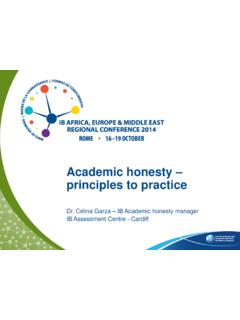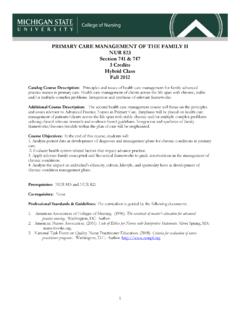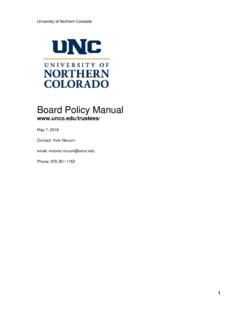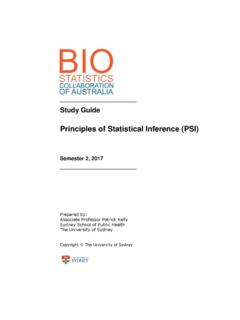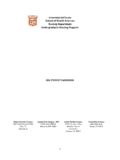Transcription of Ethical Character Development and Personal and …
1 Ethical Character Development and Personal and academic Excellence Tom Lombardo, Center for Future Consciousness Introduction The Development of Ethical Character virtues is the key to Personal , academic , and professional success in life. We will realize happiness and self-fulfillment in life, achieve our highest potential in school and work, benefit those around us, and contribute to human society as a whole, if we pursue a life of virtue. Ethics is good for us. This paper describes a balanced approach to ethics and Character Development .
2 There are positive consequences to being Ethical and negative consequences to being unethical; I will identify both. Though Personal happiness and professional success in life are examined, the center of gravity for the discussion is the dimension of academic success. This paper outlines a Character Development approach to education. Instead of assuming that the primary purpose of education is simply learning theories, facts, and skills, I propose that the central goal of education is the Development of people of Character who will use their knowledge to benefit themselves and others.
3 Acquiring knowledge is important but acquiring ethics is more important, and, in fact, ends up serving the acquisition of knowledge. The sequence of specific topics I cover is as follows: The nature and importance of ethics in life Values and the relationship between values and Character virtues The central importance of Character virtues in creating a good life, academically, personally, and professionally The concepts of educational values and virtues An examination of what I have identified as the key Character virtues integral to a positive academic experience and academic success.
4 The key virtues I examine are: The pursuit of excellence Self-responsibility Truth, honesty, integrity, and authenticity Courage Self-understanding and self-honesty Justice and fairness 1 Love of learning and knowledge Curiosity, wonder, and open-mindedness Love of thinking Discipline and determination Optimism and belief in Personal growth Social conscience and mutual respect The creative and adventurous spirit Love and the appreciative spirit Transcendence Holism.
5 Temperance, and Balance Wisdom and the Ethical application of knowledge to life I propose that the final virtue listed above, wisdom, is the central academic Character virtue, pulling together all the other Character virtues. All the other Character virtues contribute to the realization of wisdom. I argue that the pursuit and Development of wisdom is pivotal to academic success, as well as Personal happiness and professional achievement. It should be the chief goal of the academic or educational process.
6 The Nature and Importance of Ethics When I do good, I feel good. When I do bad, I feel bad. That's my religion. Abraham Lincoln Ethics is a topic often taught in philosophy classes, and a range of related courses in business ethics, professional ethics, medical ethics, research ethics, environmental ethics, and even bio-ethics has sprouted up at various colleges and universities in recent years. In fact, ethics comes up in almost every course offered in college.
7 Ethics is important across the entire academic curriculum. Though usually not taught in a formal or abstract manner, long before they take college courses on ethics if they ever do), people learn ethics through family practices and upbringing, religious instruction, peer influence, popular culture (including media), and other socialization processes. Ethics and moral instruction permeate throughout human life, guiding the Development of all of us right from the beginning. In essence, ethics is the study and practice of what is good what is moral what is best.
8 Ethics can be defined as a set of principles of conduct or a system of moral values (Thiroux and Kraseman, 2009). There are many ways to come at the question of ethics. There are many theories of what makes something right or wrong: Perhaps a person believes that ethics is determined by some hard and fast rules, which should never be questioned or broken, such as, Do not steal , Do not lie , and Do not murder. This is an absolutist theory of ethics. 2 Perhaps a person thinks that such absolute rules should be followed by everyone.
9 For example, many people (across all human cultures) believe in some version of the Golden Rule: Do unto others as you would have them do unto you. Believing that everyone should follow the same Ethical rules or principles is a universalist approach to ethics. Perhaps a person believes that we should consider the specific consequences of different actions in a given situation in determining what is right and what is wrong. Which choice leads to the best results or consequences?
10 This is a consequentialist theory of ethics. Perhaps a person believes that instead of following some set of absolute rules, we should rationally think about ethics and what the right thing to do is. Ethics should be thoughtful rather than simply the observation of rules. This is a rational and deliberative approach to ethics. Or maybe a person believes that feelings (emotions) should determine ethics. If it feels good, it is right; if it feels bad, it is wrong. This is an emotive or hedonistic approach to ethics.

